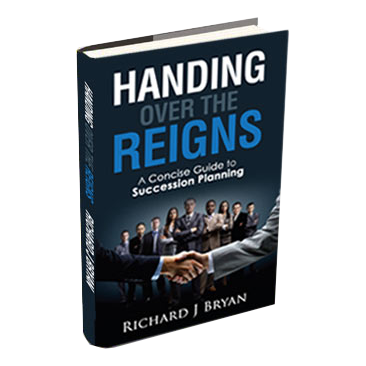All business leaders have heard—and a wise few have acted upon—the advice that their companies need succession plans in place. Yet all the best-laid plans in the world cannot make up for the absence of one key element: a team of A-Players to carry it out. Without A-Players to empower your succession planning, you are building for a dubious future using weak tools.
Yes, that’s a rather strong statement. So let me explain just why A-Players are essential for a strong future. Then I’ll give you some insights into how you can make sure you have a lineup of A-Players to power your succession planning engine.
Why A-Players Fuel Strong Succession Planning
By their very nature, A-Players strengthen your succession planning efforts. A quick list of the qualities they possess will prove my point.
A-Players are people who:
- Align themselves with the company culture and values
- Act for the good of the organization, not just themselves
- Deliver on their promises
- Take responsibility for their outcomes—no excuses, no blaming
- Are open to trying new approaches
- Motivate both themselves and others to do their best
- Make it their aim to understand the business, not just their jobs
These are the people you want on your team as you take steps to ensure long-term continuity. They are already hard at work for you. Their can-do attitudes prepare them to do whatever it takes to make sure that the company in which they feel personally invested will flourish far into the future.
A-Players also lead by example, motivating those around them to achieve greater good for the company. Who wouldn’t want a team propelled by A-Players, fully engaged in driving an effective succession plan?
Why Succession Planning is Vital for Your Company’s Future
The benefits of careful succession planning for the life of your organization can’t be over-emphasized. You can take a deeper dive into the topic here. For now, here’s a brief re-cap:
- Seamless transitions. You don’t want to drop the operations ball when a leadership change occurs. With a succession plan, you will have clearly identified the most essential roles to keep filled and developed a talent pipeline to prepare for change.
- Cultural consistency. Succession planning allows time to instill into internal candidates the values essential to achieving the organization’s goals, ensuring continuity far into the future.
- Morale and motivation. Employees can see clear paths to career advancement laid out for them, leading to better retention and engagement, as well as attracting top-tier talent for new hires.
- Resiliency and sustainability. Companies with succession plans position themselves to be agile enough to respond quickly to changes in both internal leadership and external market conditions.
Building a Pipeline of Talent
Smart succession planning ensures seamless transitions by establishing a reliable pipeline of talent. A thorough plan includes processes to train and equip the next team members to move into new roles should important personnel changes occur. Having highly motivated, company-centered people (A-Players) progressing through that pipeline is key to effective succession.
When I owned my group of car dealerships, I had a CFO leave unexpectedly at short notice for personal reasons. It took at least 12 months before his successor understood the business well enough to add value. Because we had not prepared anyone else to step up and fill this role, we had to hire from outside the industry. This created a much steeper learning curve for the new CFO.
Unfortunately, it is also true that bad things happen to good people every day. Only recently my former General Manager was tragically killed in a car accident. The last thing you want to do while grieving is to think about finding an external replacement for a position. For key roles in your business it is always better to plan for the worst than to hope for the best.
Empowering Knowledge Transfer
Elevating strong, prepared talent from within your own ranks maintains cultural consistency and provides for efficient knowledge transfer. With the intentionality created by planning, you can make certain that the people in your talent pipeline are strongly aligned with your organization’s values and well trained in the requirements of their future roles.
With a succession plan in place, you can work intentionally with your team over a longer time frame, carefully monitoring the transfer of knowledge. For instance, you can implement low-cost but very effective job shadowing and mentoring from the people they are in line to succeed. When those positions open, you have knowledgeable personnel ready to slide smoothly into place.
Performing Talent Assessment
When it comes to sustaining morale and motivation, A-Players are indispensable members of your team. This is part of the reason why one of the first things I have my CEO coaching clients do is a talent assessment of their leadership team. Clearly, the higher the percentage of A-Players on the team, the easier it is to achieve consistent long-term growth and profitability.
Also, when a CEO can trust their team of A-Players to run the day-to-day business, this gives them the freedom to focus on what is important to the business—such as strategy, key relationships, and finding and developing other A-Players.
Planning in a Dynamic Environment
A succession plan should evolve as your business changes and grows and as key people either retire, leave, or move to a different job. This is not just an issue for HR; it requires buy-in from the top if it is to work. Here’s where having A-Players in leadership makes an enormous difference. A-Players at the top means your leaders are naturally flexible, willing and able to adapt as needed to keep the company moving forward toward long-term success.
Well-prepared and well-positioned A-Players, carrying out a well-thought-out succession plan, can be a competitive advantage in terms of hiring and keeping top performers. This system, so attractive to more A-Players, will differentiate your company from the competition.
Hire Wisely Today for Sustainability Tomorrow
You may have heard that due to a recent shift in the US employment market, there are now plenty of people available for hire. Unfortunately, these are not necessarily A-Players—those who achieve their quantifiable goals while also buying in to the core values of the business. Many are B- or C-Players who under-performed in their last jobs and may not be a good fit with the culture of your business.
Given the importance of A-Players to the longevity of your company, I caution you to hire wisely. Consider the traits of A-Players listed at the top of this article as you scout for talent and conduct interviews. Keep in mind that these qualities are not always obvious when using traditional hiring criteria. In this short YouTube video, I share how the wrong criteria almost made me miss out on hiring one of my best employees.
To discover my recommended 7 Steps for Hiring A-Players, email me at richard@richardjbryan.com and I’ll send you a free copy. This resource spells out a process that skirts traditional roadblocks and incorporates psychometric testing to help you confidently fill your team with the kind of A-Players who will strengthen your company’s operations today and its succession plans for tomorrow.
To carry out all these steps requires serious commitment to the process of succession planning. This commitment is, at its foundation, a dedication to the success and growth of the business itself.If your company is committed to long-term growth and stability, let’s talk about how we might work together to build your company culture of succession.
Related Topics:
Are You Ready to Put AI to Work Growing Your Business?
The 7 Fundamentals of Business Turnaround: Strategies for Success
5 Signs You Excel at Strategizing for Strong Business Growth


